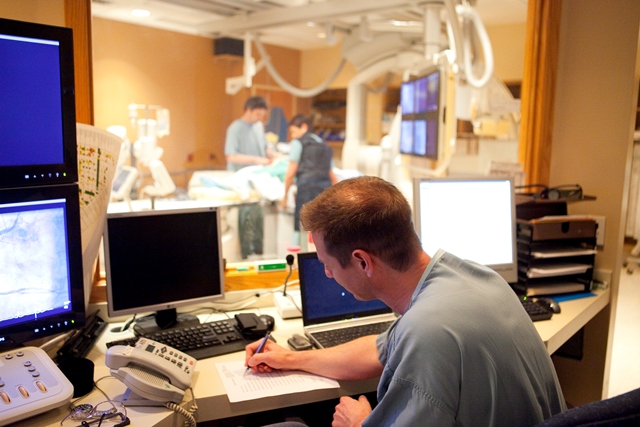By Kenneth A. Harris
Heraclitus once said, “There is nothing permanent except change.” This quote rings especially true for specialty medical education in Canada in 2018.
The Royal College of Physicians and Surgeons of Canada (Royal College), in collaboration with medical schools and other key stakeholders across the country, have officially begun implementing Competence by Design (CBD) initiative – the first systemic change to apprentice-style physician learning in over a century. CBD introduces a new approach to specialty medical training in which residents are evaluated on their abilities rather than time spent on an activity. Our current training system assumes that time spent on an activity determines a physician’s expertise, and while this time-based learning approach has been successful, there is growing evidence that suggests that the current method can be upgraded. That’s why, for the past 10+ years, over 47,000+ Fellows and faculty at Canada’s 17 teaching hospitals have worked together to develop CBD based on input and sound principles of education. The new approach to training is cutting-edge, and reflects the need for 21st century learning so that residents are prepared to work in a variety of hospital settings upon graduation. Think of it like a hockey coach with their team – to ensure players are prepared for games, the coach includes many small observations and actionable feedback. This is the essence of CBD.
CBD is an outcome-based approach that considers what abilities physicians need at each stage of their career, then organizes these abilities into specific teaching and learning outcomes for each stage of training. Holistic in nature, CBD ensures that physicians are not only evaluated on basic knowledge and clinical skills, but on competencies including patient safety, interprofessional teamwork, quality improvement, and wellness. By building in competencies that focus on bedside manners, adaptability and resiliency within medical training, we are emphasizing learning and evaluation of transferrable skills that are a ‘must have’ for doctors. CBD will also expand the learning environment to include both community and regional hospitals – not just large traditional training hospitals – to ensure residents are evaluated on relevant competencies for all settings.
CBD is designed to be ‘learner driven,’ allowing residents to play an active role in their learning and really focus on the skills and abilities they need to progress. The focus of CBD is on frequent, low stakes observations in the clinical setting leading to a continuous improvement cycle, while not unduly lengthening the process of providing care. At the same time, the competency-based approach allows educators to more easily assess what stage a learner is at, resulting in more meaningful, direct feedback for the learner. This approach aims to eliminate any knowledge gaps, and ensures graduates can perform the activities that are necessary at a particular stage of development. This will improve overall patient safety, as abilities and skills are directly assessed, rather than assumed.
CBD is being implemented through a phased approach in which ongoing collaboration with specialty committees, universities and other stakeholders is critical to continuous improvement of the program. Recognizing hospitals as essential partners in the education process, the Royal College is seeking input as part of key stakeholder collaborations. This dialogue will ensure emphasis on the role of clinical care as an important resource for both teaching and learning. Beyond ongoing collaboration, the Royal College is preparing to implement CBD by conducting pre-launch activities such as extending the Royal College Resident ePortfolio, and creating faculty support resources, assessment tools and specialty-specific milestones.
Ultimately, the initiative helps ensure specialty physicians are prepared to meet evolving patient needs in a variety of settings. Healthcare delivery continues to endure rapid change, and our specialty medical training must adequately prepare physicians for the demands on, and expectations of, the healthcare system. Doctors are now having to also navigate massive technological and societal change, and it is crucial that our medical training emphasize and evaluate the competencies necessary to navigate this change. CBD is vital to ensuring we are being proactive in creating doctors ready for the future of healthcare.
CBD is truly an investment in Fellowship, and in the quality of what stands behind designation. The program aims to instill a continuous quality improvement approach that encourages continued learning, which is why all doctors – both residents and those currently practicing – will participate in CBD. The healthcare system has evolved, and it’s time that our specialty medical training does as well. Together, we can continue to produce excellent physicians in the wake of rapid change, and provide an even higher level of care for patients seen in Canada`s healthcare institutions.
Questions about CBD? Contact us at cbd@royalcollege.ca
Kenneth A. Harris, MD, FRCSC is Executive Director, Royal College of Physicians and Surgeons of Canada


